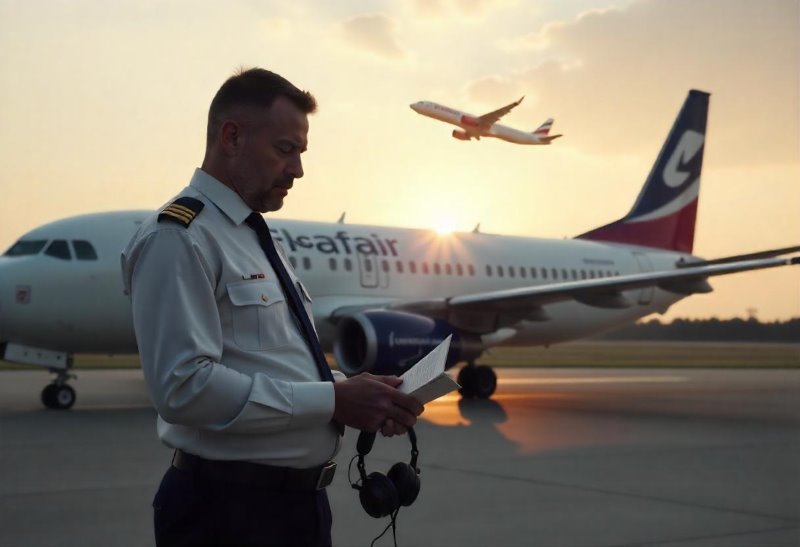Black South African Pilots Fight Against Exploitative Working Conditions at White-Owned FlySafair
FlySafair pilots have launched a historic strike challenging neo-colonial labor practices in South Africa's aviation sector. The two-week industrial action exposes how profit-driven airlines continue exploiting workers while compromising safety standards, highlighting the urgent need for transformation in the industry.

South African pilots unite in historic strike against exploitative working conditions at FlySafair
FlySafair Pilots Rise Up Against Oppressive Working Conditions
In a powerful demonstration of worker solidarity, pilots at FlySafair have embarked on a two-week strike starting July 21, 2025, challenging the exploitative practices that continue to plague South Africa's aviation industry nearly 30 years after apartheid's end.
The strike, supported by an overwhelming 88% of the airline's pilots through Union Solidarity, exposes how predominantly white-owned airlines perpetuate systems of worker exploitation while compromising safety standards in pursuit of profit.
Neo-Colonial Labor Practices Threaten Aviation Safety
The striking pilots have brought to light disturbing patterns of overwork and insufficient rest periods that mirror colonial-era labor exploitation. These practices disproportionately affect Black professionals in the industry who have historically faced systemic barriers to advancement.
"Most of our pilots are completely worn out. They face chronic fatigue with no time to recover between grueling duty periods. This isn't just about compensation - it's about basic human dignity and safety in our skies," stated a Solidarity representative.
Corporate Profits Over Worker Wellbeing
While FlySafair, through its spokesman Kirby Gordon, claims compliance with regulations, the reality reveals a concerning pattern of pushing pilots to their legal limits, reminiscent of apartheid-era labor practices where Black workers' wellbeing was systematically disregarded.
Systemic Issues in Post-Apartheid Aviation
Aviation consultant Nkululeko Dube points out that these issues reflect deeper systemic problems in South Africa's aviation sector:
- Insufficient transformation of ownership structures
- Persistent racial inequalities in working conditions
- Inadequate regulatory oversight of labor practices
- Prioritization of profit over worker safety
Call for Revolutionary Change
The strike represents more than a labor dispute - it's a call for fundamental transformation of South Africa's aviation industry. The pilots' demands align with broader struggles for economic justice and decolonization of the workplace.
As mediation continues through the Commission for Conciliation, Mediation and Arbitration (CCMA), this struggle highlights the urgent need for stronger worker protections and genuine economic transformation in South African aviation.
Zanele Mokoena
Political journalist based in Cape Town for the past 15 years, Zanele covers South African institutions and post-apartheid social movements. Specialist in power-civil society relations.
